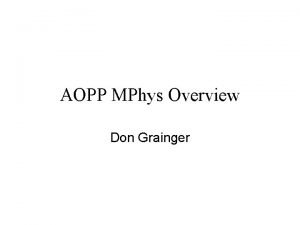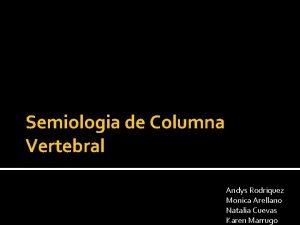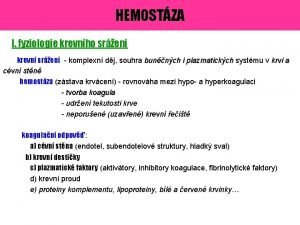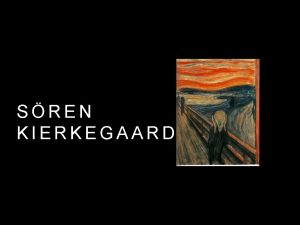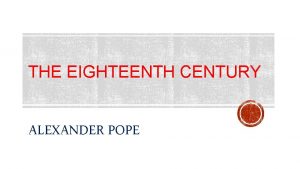Sren Kierkegaar d Alexander Grainger Sarah Laguerre Kristen








- Slides: 8

Søren Kierkegaar d Alexander Grainger Sarah Laguerre Kristen Smith Alexandra Phillips Bailey Alewine

I am Søren Kierkegaard! I am a father of Existentialism.

Biographical information – Born May 5, 1813 – Youngest of seven kids of Michael Pedersen Kierkegaard and the housemaid – Søren’s dad believed there was a curse on the family – 5 of 7 of the children died – 1830, went to University of Copenhagen to study theology – 1838, father passed away – 1840, received master’s degree from Copenhagen University

Spiritual history – He wasn’t really a Christian but was born to a Lutheran family – Wrote poems about religion and defended Christianity and the Christian morality in his work – He believed that the Christian faith was a matter of individual subjective passion and that faith was a really important goal in a human being – The only thing he was against was the structure of the church and would write works against the church including the Danish People’s Church

Aesthetic point of view – There’s three ways of living, Aesthetic, Religious, and Ethical – The aesthetic person lives in the moment – they do not have deep commitments to anything – sees life as full of possibilities that should be enjoyed – lives to better themselves and see themselves as a goal – The religious way of living is how Kierkegaard himself lived, everything is justified by God, and life is full of anxiety, suffering, but you just have to live with the consequences.

Philosopher's ethical point of view – Ethical individuals develop a system by which they will make choices and build relationships. – Men should use the liberties they have instead of demanding the liberties they do not. – Do not give ethical justification of his act to the community, but must simply obey the divine command. – Actions are to be in accordance with rules, and these rules are universally applicable to moral agents. – In order to arrive at a position of religious faith the individual must first embrace the ethical.

Other philosophers’ influence – Kierkegaard was influenced by the ancient Greek philosophers Plato and Socrates, And there writing methods. – Socrates used a method of wise man reasoning. This is where he acts like he doesn't understand someone's belief forcing them to examine their own beliefs. – Plato used dialogues where characters would debate all sides of an issue the purpose of this was much the same as Socrates method of questioning. To get readers and listeners involved – Kierkegaard used similar methods in his writing he wanted to engage his readers so they could seek answers themselves

Bibliography "Internet Encyclopedia of Philosophy. " Internet Encyclopedia of Philosophy. Stanford Encyclopedia of Philosophy, n. d. Web. 30 Sept. 2016. Mc. Donald, William. "Søren Kierkegaard. " Stanford University, 1996. Web. 30 Sept. 2016. "Søren Kierkegaard the Original Leap of Faith. " Existential Primer: Søren Kierkegaard. Existential Primer, n. d. Web. 30 Sept. 2016. "Søren Kierkegaard. " Spark. Notes, n. d. Web. 03 Oct. 2016.


